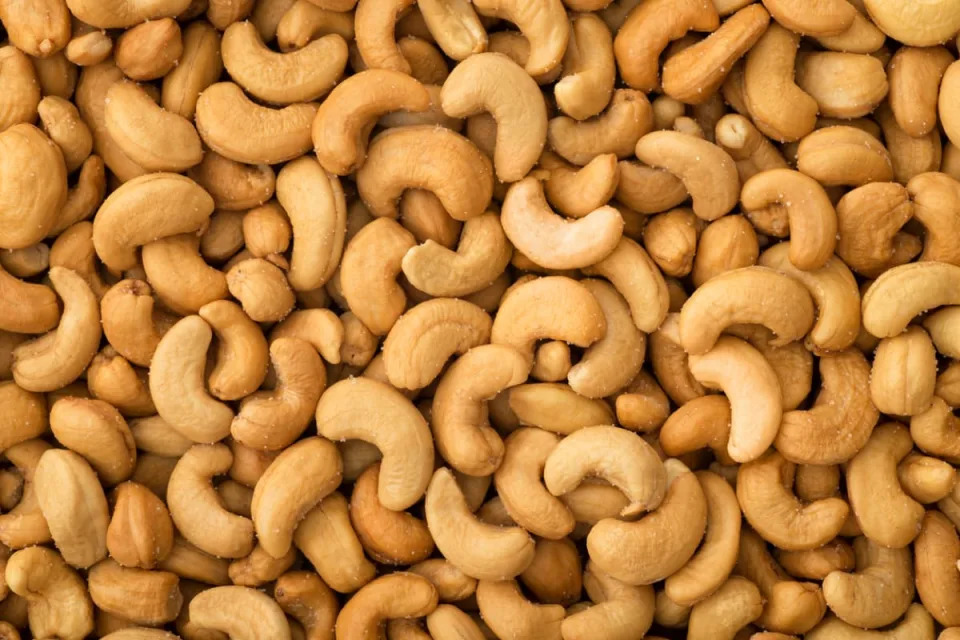Parade
Are Cashews Actually Good for You? Registered Dietitians Share What You Need To Know
Emily Laurence – February 27, 2023

Find out how eating them regularly can impact your body.
Trying to get to the end of the debate about whether cashews are good for you can make you feel a little, well, nuts. Similar to potatoes and pickles, cashews are a food there’s a lot of confusion over when it comes to its health benefits (and even what it is—cashews are technically drupes, not nuts).
It’s time to put an end to the questioning. According to both registered dietitian Isabel Smith, RD, CDN and Foodtrainers founder Lauren Slayton, MS, RD, cashews are definitely a nutrient-rich food and have many health benefits.
Related: 11 Types of Nuts to Mix Into All Your Meals (And Get a Little Nutty!)
Cashew Nutrition Facts
First things first: What does the nutritional breakdown of cashews look like? Here’s the breakdown per 1 oz of cashews, per the USDA.
- Calories: 157
- Fat: 12 g
- Sodium: 3 mg
- Potassium: 187 mg
- Carbohydrates: 9 g
- Protein: 9 g
7 Benefits of Eating Cashews, According to Dietitians
1. They provide the body with energy
Half a cup of cashews has roughly seven grams of protein—a key nutrient that provides the body with energy. So if you’re looking for a quick snack to help you push through an afternoon slump or to help your body recover after a workout, a handful of cashews can be a good one to go for.
2. Incorporating cashews into your meal will keep you feeling full longer
In addition to protein, both dietitians say that cashew nuts are a good source of unsaturated fats. Both protein and unsaturated fats are important for satiety. If you have a piece of toast for breakfast, you’ll likely find yourself hungry shortly after. But if you spread cashew butter on it, you’ll be full for longer thanks to these two key nutrients.
3. Cashews are good for your heart
The unsaturated fats in cashew nuts don’t just help with satiety; Smith and Slayton both say that they’re good for heart health too. Smith points to scientific studies showing that a diet that includes unsaturated fats is linked to lower inflammation, improved blood pressure and lower cholesterol.
If you want to incorporate cashew nuts into your diet with the intention of supporting your heart, Slayton says to make sure you stick with unsalted ones, which are lower in sodium.
Related: 25 Foods That Are Good for Your Heart—From Fruits and Veggies to Heart-Healthy Nuts and Seeds
4. Eating cashew nuts supports mental health
“Cashews are a good source of magnesium and eating foods high in magnesium can help those with anxiety or depression,” Slayton says. Sure, snacking on cashews isn’t going to instantly transform your mood, but there is strong science showing a connection between what we eat and how we feel.
5. Cashews are good for cognitive health
There’s another way that cashew nuts support brain health. Slayton says that they contain selenium, a nutrient that’s linked to supporting memory and cognition. “Additionally, they contain phenolic acids that have protective brain benefits and may even decrease or prevent beta-amyloid plaques in the brain,” Smith says. “Plus, they contain different vitamins and minerals, all supporting brain health, including vitamin E, magnesium, copper, and zinc.” Add it to your list of brain-healthy foods, right along with salmon, eggs and berries!
Related: Brain Health Experts Agree That This Is the Absolute Worst Food for Your Mind
6. They help prevent high levels of chronic inflammation
Many of the nutrients in cashew nuts—including their unsaturated fats and polyphenols (a type of antioxidant)—are linked to lowering chronic inflammation, which benefits the body as a whole. High levels of inflammation can lead to a wide range of health problems, including certain cancers, neurological decline and chronic pain, which is why it’s so beneficial to eat a diet rich in anti-inflammatory foods, including cashews.
7. Eating cashews supports digestive health
Slayton says that cashews contain two nutrients that are majorly good for digestion: fiber and magnesium. Fiber is important for adding bulk to stool and keeping the digestive system functioning properly while magnesium is linked to reducing constipation.
The exception to this is if you are sensitive to FODMAPs, foods that are tougher for the body to digest. Smith points out that cashews are a high-FODMAP food so anyone on a low-FODMAP diet should either avoid or minimize their consumption.
Tips for Integrating Cashews Into Your Diet
When shopping for cashew nuts, Slayton reiterates her advice about sticking to ones that are unsalted, which are lower in sodium. Smith adds that it’s also a good idea to avoid cashews that are roasted in oil, as the type of oil used tends to be inflammatory.
Smith also says to avoid bulk bins. “I know they are often more convenient and cheaper, but nuts in bulk bins are consistently exposed to air which can lead to them going bad and oxidizing before you even get to take them home,” she explains.
In terms of incorporating cashew nuts into your diet, there’s no shortage of ways to do so. Cashews can be enjoyed on their own or used as an ingredient in many dishes, including oatmeal, yogurt, stir-fry, chicken dishes and salads. “Cashews have a creamy quality. Soaked and blended cashews are good for plant-based dressings and dips,” Slayton recommends. This is why cashews are often used as the base for many vegan kinds of cheese. You can also find cashew butter at most grocery stores, which can taste delicious on toast, on sweet potatoes or paired with a banana.
However you decide to integrate cashew nuts into your life, your whole body will benefit. Consider the debate on whether or not they’re healthy officially settled.
